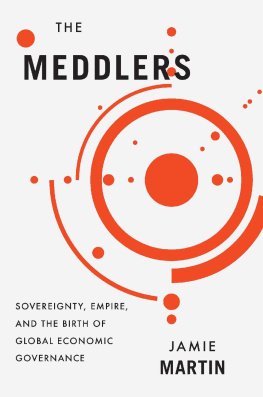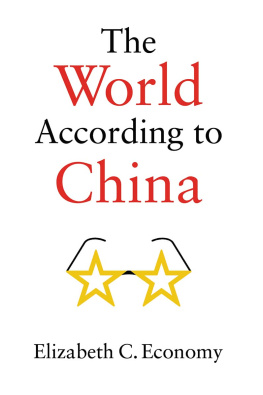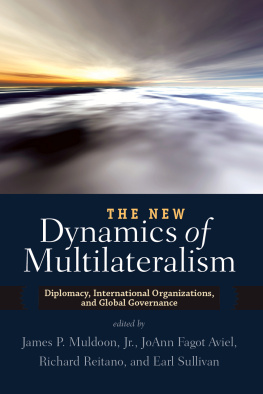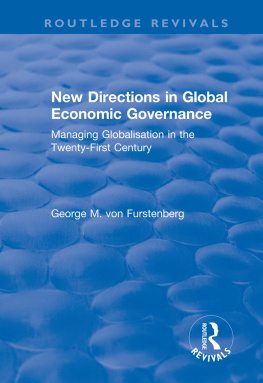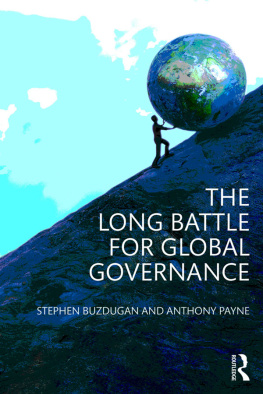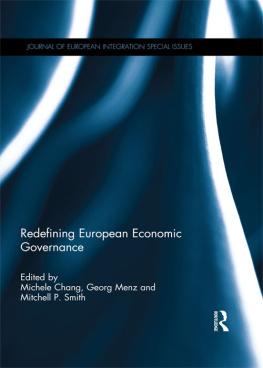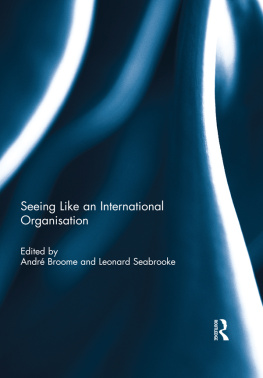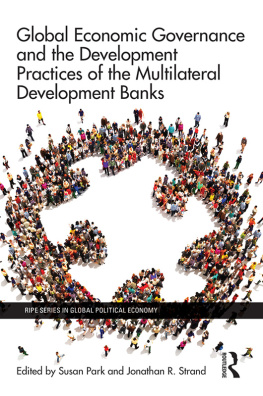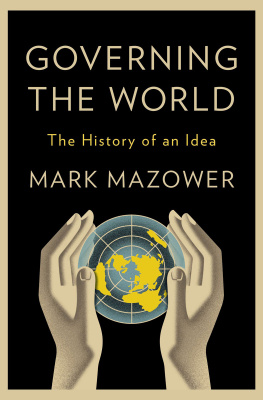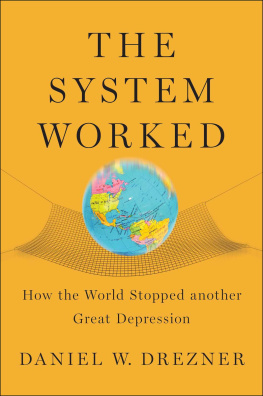The Meddlers
SOVEREIGNTY, EMPIRE, AND THE BIRTH OF GLOBAL ECONOMIC GOVERNANCE
Jamie Martin
Harvard University Press
CAMBRIDGE, MASSACHUSETTS
LONDON, ENGLAND
2022
Copyright 2022 by the President and Fellows of Harvard College
All rights reserved
Cover design: Graciela Galup
Cover art: Getty Images
978-0-674-97654-2 (cloth)
978-0-674-27577-5 (EPUB)
978-0-674-27576-8 (PDF)
The Library of Congress has cataloged the printed edition as follows:
Names: Martin, Jamie, 1984 author.
Title: The meddlers : sovereignty, empire, and the birth of global economic governance / Jamie Martin.
Description: Cambridge, Massachusetts : Harvard University Press, 2022. | Includes index. | Identifiers: LCCN 2021047323
Subjects: LCSH: International Monetary FundHistory. | International financeHistory20th century. | Economic councilsHistory20th century. | Economic history1918 | World War, 19141918Economic aspects. | SovereigntyEconomic aspectsHistory20th century. | CapitalismHistory20th century.
Classification: LCC HG3881 .M338 2022 | DDC 332.4/5dc23/eng/20220105
LC record available at https://lccn.loc.gov/2021047323
For my parents
Janet Whelan and Roger Martin
And for Katrina
CONTENTS
B Y THE END OF the twentieth century, a small number of international institutions had come to wield great influence over the domestic economic policies of many states around the world. The International Monetary Fund (IMF) and World Bank made assistance to member states conditional on them enacting a broad suite of reforms, often with far-reaching political and social consequences. From Africa to Latin America to Asia, loans were tied to the balancing of government budgets, the privatization of state-owned industries, the removal of regulations, and the lowering of tariffs. The World Trade Organization (WTO) targeted not only outright barriers to trade but also an array of domestic laws and regulations concerning health and safety, industrial and agricultural policy, and the environment. Working alongside powerful governments, central banks, and private corporations, these institutions exercised powers of global economic governance that unsettled long-standing norms of sovereignty, which, at least in theory, were meant to safeguard national institutions and policy-making from outside interference.
There is a well-known story about the twentieth-century origins and development of these powers of global economic governance. It begins with the Bretton Woods Conference of July 1944, when, just as the Allied invasion of Western Europe was unfolding, representatives from forty-four countries met to reshape the rules of the international monetary system and create two new institutions, the IMF and World Bank, to govern the world economy. Within a few years, these institutions were joined by the General Agreement on Tariffs and Trade (GATT), a legal agreement between twenty-three states to encourage a return to freer trade. This unique postwar arrangement lasted for two and a half decades. When the Bretton Woods system fell apart in the early 1970s, the IMF and World Bank, having lost their original mandates, began to exercise greater powers over the domestic policies of some of their members. Using the incredible leverage of access to foreign capital, they enforced austerity and structural adjustment reforms, which dramatically reshaped the economies and institutions of many countries. In 1995, when the more interventionist WTO replaced GATT, it also began to deal with problems once assumed to reside within the exclusive jurisdiction of sovereign states.
The increasingly intrusive powers of these institutions damaged their legitimacy. They were criticized around the world for interfering in domestic politics and imposing neoliberal policies on states in the Global South and former communist bloc. Even their supporters raised difficult questions about their compatibility with traditional conceptions of sovereignty and democracy. If representative politics remained an exclusively national affair, how could institutions beyond the state legitimately make such extensive demands on domestic policy? What was the difference between a voluntary act of delegation to such an institution and an act of submission to the powerful foreign governments and private interests that set its agendas?
These questions are often considered unique to an era of late twentieth-century neoliberal globalization. But they are in fact quite old. Their origins date to the end of the First World War, when international economic institutionsfor the first time in historybegan to intervene in the most consequential domestic economic decisions of some of their member states. In the process, these institutions oversaw a major transformation in sovereignty and international order, as they reshaped tools of informal empire for a new era of self-determination. The Meddlers tells the story of this transformation. In doing so, it offers a political history of the birth of global economic governance at a moment of profound flux in the relationship of empire and global capitalism.
The first international economic institutions were designed to defend capitalism and stabilize a European-dominated international order that the First World War had thrown into turmoil. Their powers were shaped according to the prerogatives of a few European governments and central banksprimarily those of the victorious Allied powers and, above all, Britain. But US private interests and occasionally public authorities also played a role in their genesis. The most important such institution was the League of Nations. In 1920, the League established the first standing intergovernmental economic and financial bodies, modeled on wartime councils used by the Allied powers to regulate global trade and shipping. A few years later, the worlds first international bank, the Bank for International Settlements, was established to facilitate the cooperation of European central banks and help resolve the destabilizing problem of German reparations. Various intergovernmental bodies were created to control the global production and exchange of raw materials and agricultural goods. These institutions worked alongside private international cartels; the International Chamber of Commerce, a business lobbying group; and the International Labour Organization, which was dedicated to expanding labor laws and worker protections in member states. Across various domains, international intervention in economic processes became routine, as global markets were embedded in new legal and institutional frameworks, underwritten by a handful of powerful states, empires, and banks. At the Bretton Woods Conference in 1944, a second wave of innovation in international economic governance began, which both built on and departed from this earlier one. The twentieth-century history of global capitalism runs through these international institutions.
During the interwar years, these bodies developed novel powers over once-insulated domestic realms of economic policy-making. They tied loans to commitments to austerity or development practices; coordinated the policies of independent central banks beyond the direct control of national governments; and imposed restrictions on the production and export of certain raw materials and agricultural goods. These new powers involved demands to open policies, resources, and information to the reach of actors beyond the sovereign borders of states and empires. Such demands always faced fierce opposition, since they were widely seen as challenges to a long-established norm of international law and diplomacy: that formal sovereignty provided protection from any kind of foreign interference. There were many areas of policy that were designated problems of domestic administration alone, including immigration and religious and civil matters. But few were as significant in their implications as economic policies like tariffs, taxation and public spending, the management of currencies, and the regulation of raw material and agricultural production. Any state that allowed a power beyond its realm to weigh in authoritatively on such economic issues was said, in effect, to be relinquishing its full sovereignty.
Next page
